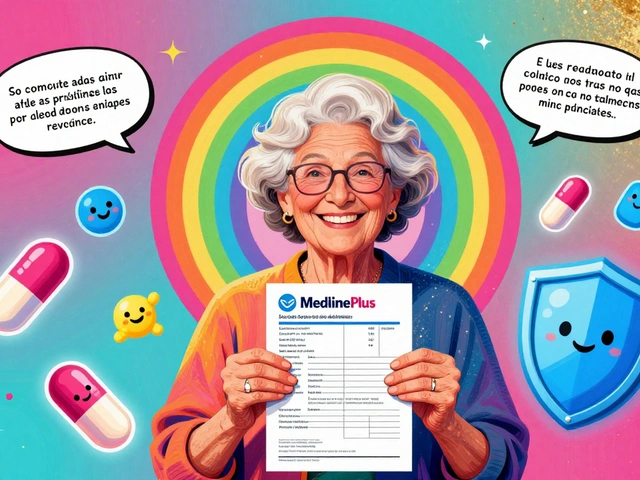Insomnia – What Triggers It and How to Get Better Sleep
If you’re scrolling at 2 a.m. wondering why you can’t fall asleep, you’re not alone. Insomnia affects millions, and the reasons are often easier to spot than you think. Below we break down the biggest culprits, especially medicines that can keep you awake, and give you real‑world steps you can try tonight.
Medications That Sabotage Your Sleep
A lot of prescription drugs list "insomnia" as a side effect. Steroids like Prednisone, antidepressants such as Escitalopram, and even some antibiotics can raise your heart rate or cause anxiety that makes sleep tough.
For example, our guide on How to Buy Prednisone Online Safely (USA, 2025) explains why this steroid is powerful for inflammation but also why it may disturb your night. If you’ve been prescribed a new medication, check the label or ask your pharmacist if insomnia is listed.
When you notice restless nights after starting a drug, talk to your doctor. Often they can adjust the dose, switch to an alternative, or suggest taking the pill earlier in the day to reduce nighttime impact.
Everyday Actions That Can Calm Your Brain
Besides meds, lifestyle habits play a huge role. Here are three things you can start right now:
- Limit screens an hour before bed. Blue light tricks your brain into thinking it’s daytime. Try reading a paperback or listening to calm music instead.
- Set a consistent bedtime routine. Even a 5‑minute stretch, a warm shower, or a cup of herbal tea signals to your body that sleep is coming.
- Avoid caffeine after noon. A single coffee can linger for up to six hours and keep you wired when it’s time to wind down.
If you’ve already tried these tricks and still toss and turn, consider a short “wind‑down” window. Turn off bright lights, dim the room, and breathe deeply for 3 minutes – this simple reset can lower stress hormones that keep you awake.
When insomnia becomes chronic (lasting more than three nights a week for over a month), it’s time to look deeper. Underlying conditions like anxiety, depression, or even acid reflux can show up as sleeplessness. Our article on Protonix: The Straight Facts On Pantoprazole highlights how untreated heartburn at night can interrupt sleep, so managing those health issues matters too.
Finally, if you need a short‑term help to fall asleep, over‑the‑counter melatonin is often safe for most adults. Just avoid high doses and don’t rely on it every night – your body’s natural rhythm works best without constant supplementation.
Insomnia can feel like a never‑ending loop, but pinpointing the cause—whether a new prescription, caffeine habit, or stress trigger—gives you a clear path forward. Use the tips above tonight, keep an eye on how meds affect your sleep, and don’t hesitate to talk to a healthcare professional if the problem sticks around.
Unisom: Sleep Aid Facts, Tips, and Safe Use Guide
Discover what Unisom is, how it works, who should use it, safety advice, side effects, and practical tips for better sleep.






